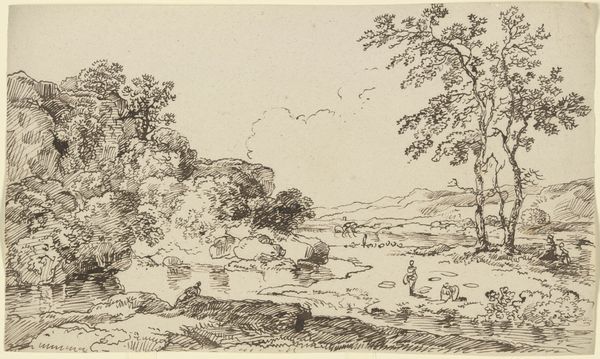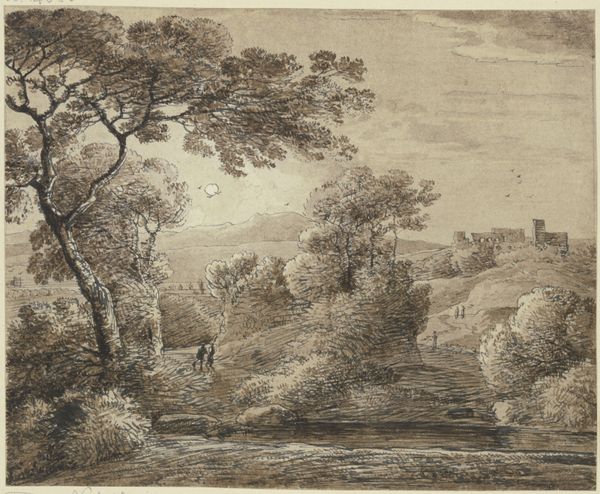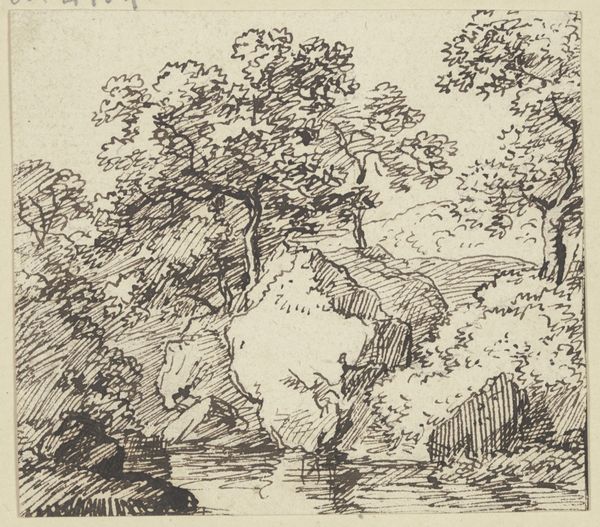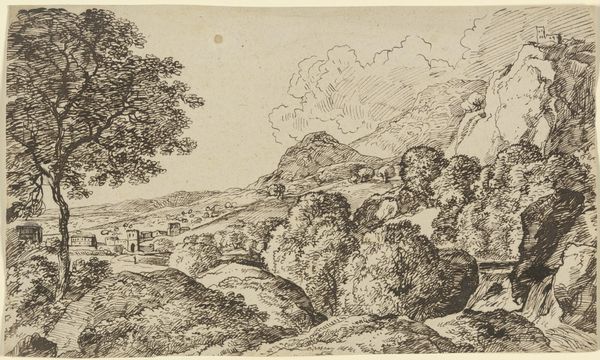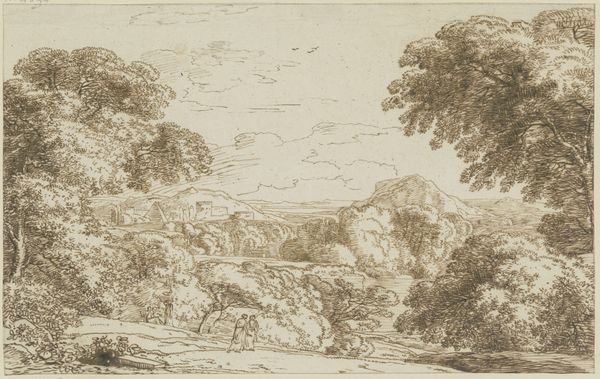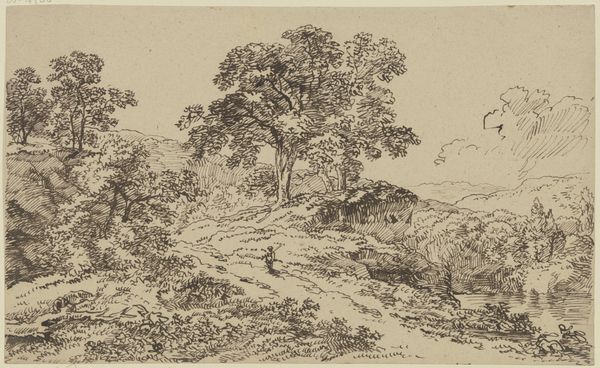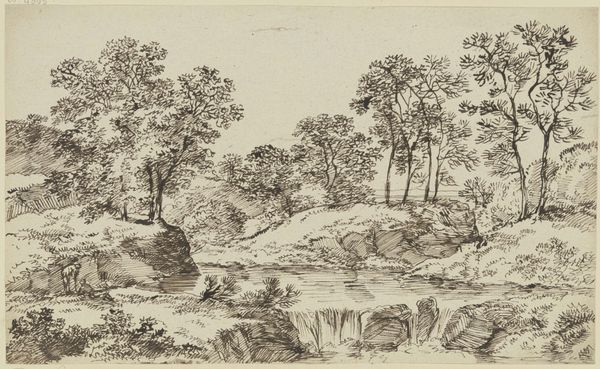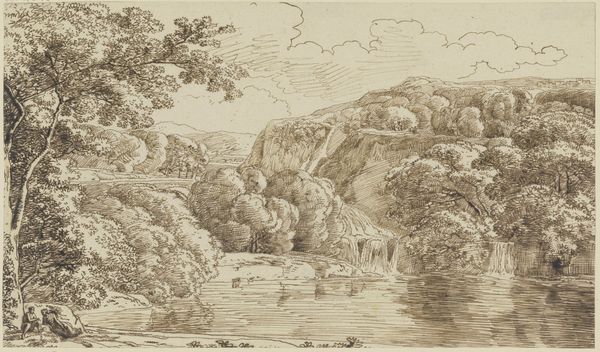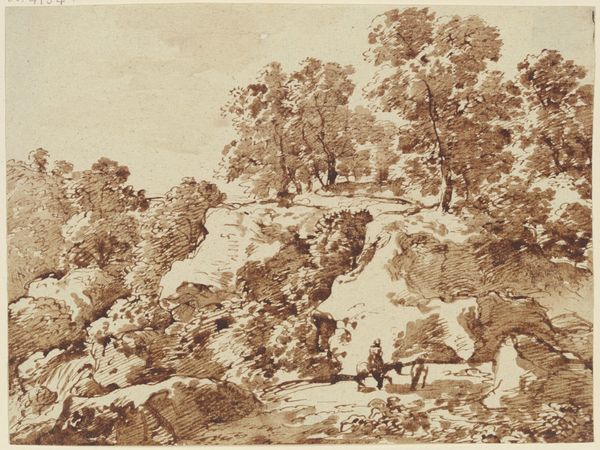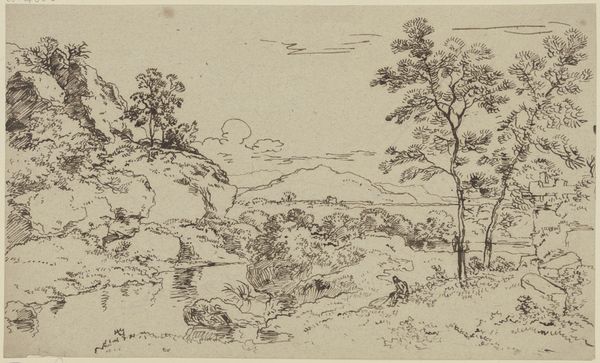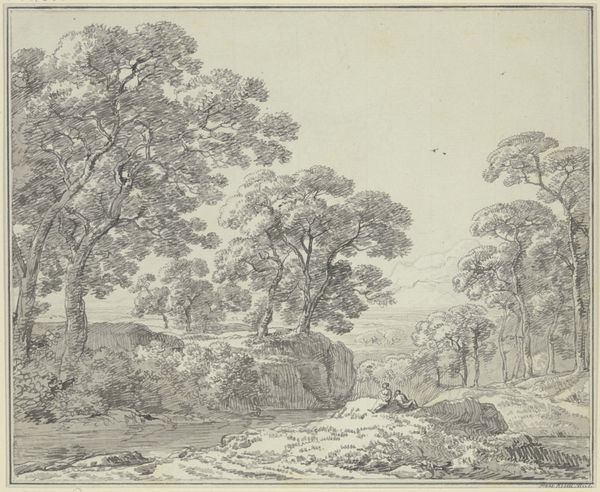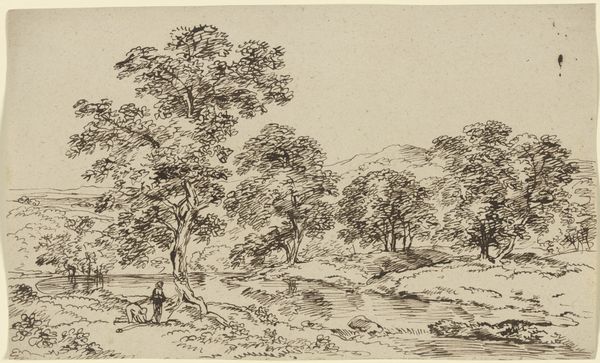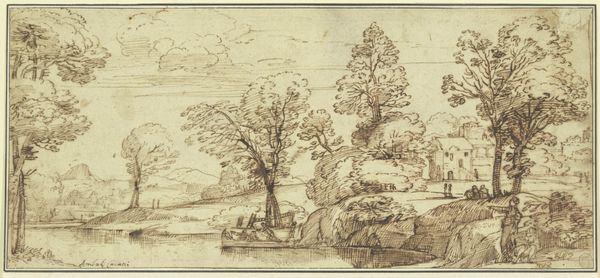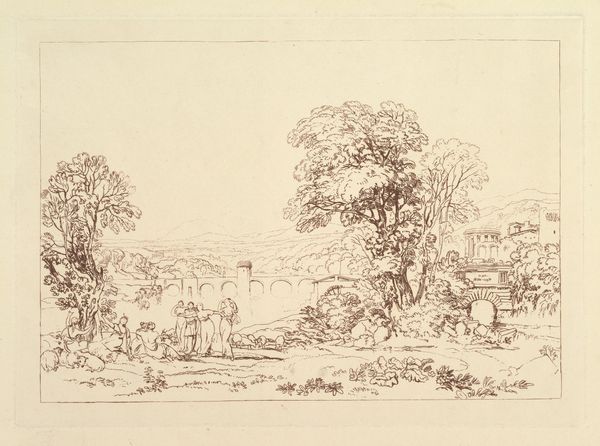
drawing, ink
#
drawing
#
landscape
#
ink
#
romanticism
#
line
Copyright: Public Domain
Curator: Before us we have "Flusslandschaft mit hohen Baumen," or "River Landscape with Tall Trees," held here at the Städel Museum and created by Franz Kobell. Though undated, it gives us a glimpse into his masterful drawing. Editor: Oh, isn't that charming? There's something so peacefully rugged about it. The trees feel immense, ancient even. The composition almost breathes. I love how a few delicate strokes of ink build such a scene. Curator: Yes, Kobell was indeed masterful in rendering the Romantic landscape. His influence in defining a particular understanding of the idyllic natural setting, especially for the emerging middle class of the time, can’t be overstated. You're right—it is both charming and, in its own way, revolutionary. Editor: Revolutionary, how so? Is there subtle propaganda hiding amongst those deceptively quiet strokes? Curator: Well, perhaps not so overt. But the growing accessibility and prominence of these romanticized views shaped a specific kind of engagement with landscape in German culture. By making such images, and selling prints, the picturesque was packaged for widespread consumption. Consider the political ramifications of that idealised vision! Editor: Now that is sneaky. All those innocent rocks and trees are quite devious, really. I almost miss the untouched experience of stumbling upon a beautiful place. Instead of encountering raw nature, do we just see... reproductions of Kobell? Curator: Well, let’s not get *too* dramatic. Yet art undeniably conditions how we look, and what we value. But the beauty of this particular artwork for me is its ability to transcend those conditions and be viewed even now. We understand its impact. And still, it's capable of giving pleasure, all these years later. Editor: You're right. Maybe there is some sort of quiet rebellion still living here, as the piece offers us a gentle, accessible view. And as a viewer I’m also complicit in all of this viewing business too. What's left, then, I wonder, that remains uncolonized in all this scenery? Curator: Perhaps a longer conversation! But maybe the dialogue itself is a type of decolonization... the starting point to challenge ourselves. Editor: Okay, point taken, let's save it for another visit. I’m happy to keep looking!
Comments
No comments
Be the first to comment and join the conversation on the ultimate creative platform.
